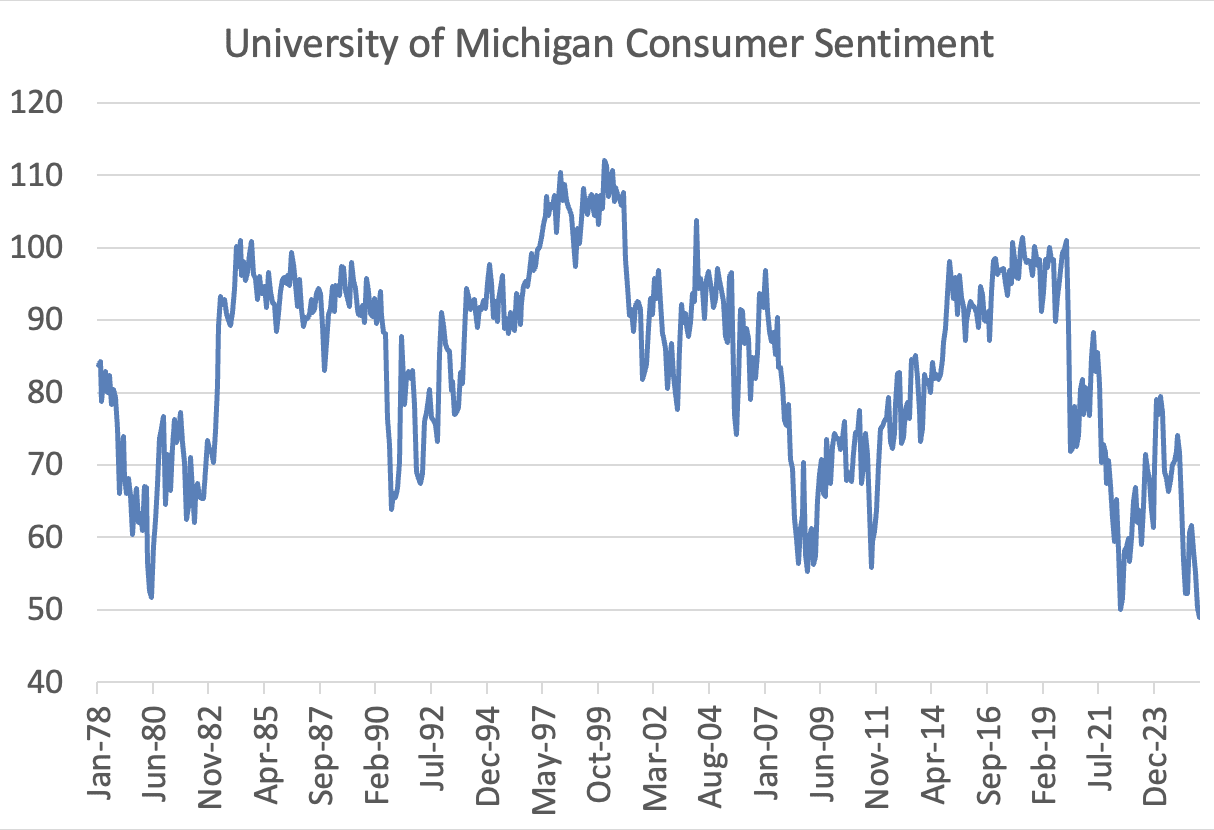Chart 1
Donald Trump continues to claim that grocery prices are “way down”. Yet anyone who does their own food shopping – unlike Trump -- can tell you that Trump’s statement is false. He also insists that polls showing high disapproval of his economic management are “fake,” despite blowout Democratic victories in recent elections that validate what the polls were saying.
That said, although the U.S. economy isn’t performing as well as Trump claims, there is a disconnect: by conventional measures it isn’t doing badly enough to justify the extremely negative views Americans currently hold. The last economic numbers available (delivered before the shutdown) showed unemployment at 4.3 percent and inflation at 3 percent. These are both decent numbers from a historical perspective. Yet according to the long-running University of Michigan survey of consumer sentiment, shown as Chart 1 at the top of this post, Americans have a worse view of the economy now than:
· in mid-2022, when inflation hit around 9 percent
· in the immediate aftermath of the financial crisis, when unemployment was in double digits
· in 1980, when the economy was in recession and had double-digit inflation.
Many observers have compared Trump’s predicament with the problems faced by the Biden administration, whose attempts to highlight good economic data alienated many voters who felt that their concerns weren’t being taken seriously. In one important way this is false equivalence: Biden and his officials were pointing to actual data that did indeed seem to paint a relatively positive picture of the economy. Trump and company, by contrast, are simply lying.
But although Biden and his people were honest, while Trump and his people aren’t, it’s true that we now have two presidencies in a row in which Americans are far more negative about the economy than the usual measures would have predicted.
So I’m devoting this and next week’s primers to the topic of “vibecessions,” a term coined by Kyla Scanlon for periods in which people feel lousy about an economy that according to conventional measures seems pretty good or at least not so bad.
Fair warning: I won’t pretend to have a definitive explanation of the phenomenon. But in the process of trying to understand vibecessions we can learn a lot about both recent economic history and the factors that affect economic perceptions.
Beyond the paywall I’ll address the following:
1. The surprisingly strong case for Bidenomics
2. The inflation story
3. Why people hate inflation
4. Why vibecessions are still a puzzle
In that final section I’ll show that the economic vibes have been surprisingly negative even taking inflation into account. Next week I’ll take on possible explanations of this negativity.
.png)





